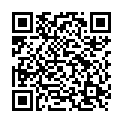|
|
|
| Module code: MARPF-514 |
|
|
4V (4 hours per week) |
|
6 |
| Semester: according to optional course list |
| Mandatory course: no |
Language of instruction:
German |
Assessment:
Written exam (90 minutes), term paper and presentation (weighting 1:1)
[updated 13.09.2018]
|
MAMS-514 (P420-0014) Marketing Science, Master, ASPO 01.04.2016
, optional course
MAMSc-514 Marketing Science, Master, SO 01.04.2025
, optional course
MARPF-514 (P420-0014, P450-0219, P450-0220) Accounting and Finance, Master, ASPO 01.10.2017
, optional course
MARPF-514 (P420-0014, P450-0219, P450-0220) Accounting and Finance, Master, SO 01.04.2025
, optional course
MASCM-514 (P420-0014) Supply Chain Management, Master, ASPO 01.04.2016
, optional course
MASCM-514 (P420-0014) Supply Chain Management, Master, ASPO 01.04.2017
, optional course
|
60 class hours (= 45 clock hours) over a 15-week period.
The total student study time is 180 hours (equivalent to 6 ECTS credits).
There are therefore 135 hours available for class preparation and follow-up work and exam preparation.
|
Recommended prerequisites (modules):
None.
|
Recommended as prerequisite for:
|
Module coordinator:
Prof. Dr. Thomas Tinnefeld |
Lecturer: Prof. Dr. Thomas Tinnefeld
[updated 28.02.2016]
|
Learning outcomes:
After successfully completing this module, students will:
- have attained language skills at the B1 intermediate level of the Common European Framework of Reference for Languages (CEFR),
- be able to understand basic and detailed information in intermediate general language and business French texts
-
be able to follow intermediate-level conversations in their own area of expertise and deal with specific communicative experiences in French business life in a receptive manner,
-
be able to communicate with native speakers using the linguistic means at their disposal in such a way that they can communicate successfully in general language and business-oriented conversations,
-
be able to express themselves in writing on general language and selected specialized language topics in a largely comprehensible and communicative manner,
-
be able to give professionally and technically-oriented presentations and create the corresponding written materials in a linguistically appropriate manner,
-
have mastered the grammar relevant for the above skills, the basic general vocabulary, parts of the advanced French vocabulary and some French business vocabulary,
-
be sensitive to the intercultural characteristics of countries belonging to the francophone world and thus, be able to successfully manage important communication situations in daily (business) life and
-
be capable of embracing the intercultural differences of countries belonging to the francophone world and verbally interact there, to a large extent, successfully.
- Reading and listening comprehension texts at intermediate level
[updated 05.12.2019]
|
Module content:
Texts for listening comprehension
- Production of relevant written French texts (e.g.
business correspondence, e-mails, memos, curriculum vitae and letters of motivation)
- Production of relevant oral French texts (e.g.
telephone conversations, short reports and negotiations with a relatively narrow
thematic focus)
- Dealing with economic and business issues
- Vocabulary work and specialized grammar
- Multimedia language lab
- Role playing and simulations with reference to business life
- Creation of subject-related, specialized presentations
- Awareness of interculturally relevant contexts in the French-speaking
world (both everyday life and work)
- Introduction to interculturally-oriented negotiation strategies
[updated 05.12.2019]
|
Teaching methods/Media:
- Presentations by the lecturer
- Plenary discussions
- Group discussions
- Partner work
- Group work phases where students tackle specific tasks
- Multimedia language lab
- Student presentations
- Short talks by the students
- Internet research
[updated 13.09.2018]
|
Recommended or required reading:
- Use of free materials compiled by the lecturer (no
textbooks)
- Listening comprehension texts (audio and/or video)
- Internet resources
- Supplementary materials on general and/or specialized
vocabulary and grammar
[updated 13.09.2018]
|


